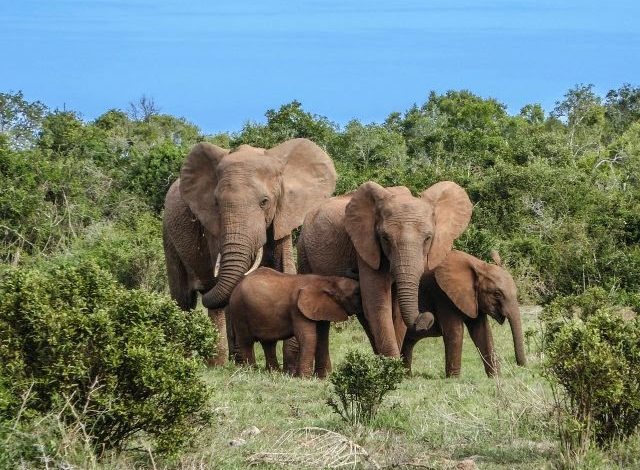International Conservation Union Lists African Elephants As Endangered Species
The populations of African forest elephants and African Savannah elephants are declining as poaching continues in some parts of Africa.

The International Union for the Conservation of Nature (IUCN) has listed the African forest elephant among the animals “in critical danger of extinction.”
The IUCN also listed the African savannah elephant as being in danger and on the “red list” of threatened species.”
This follows the sharp decline in the population of these animals due to the activities of poachers and lack of habitation.
“We must in all urgency, put an end to poaching and ensure the conservation and availability of sufficient and convenient habitats for the elephants of the forest and the savannah,” said Dr Bruno Oberle, the Director-General of IUCN.
“These last years, many African countries have shown the path to be followed, demonstrating that reversing the tendency of the decline of elephants is possible. We must work together so that their example can be followed.”
The latest evaluations have shown proof of an important reduction in the number of African elephants throughout the continent.
The forest elephant, which is smaller than its savannah cousin which lives essentially in the forests of Central Africa (notably in Gabon and Congo) and West Africa, have seen their populations decline by 86 per cent within the past 30 years.
The population of the savannah elephant has on its part reduced by 60 per cent within the last 50 years.
“The necessity of conserving in a creative way and managing these animals and their habitats judiciously is most pressing now than ever,” declared Dr Kathleen Gobush, the principal evaluator of the African elephants and member of the specialist group of IUCN on African elephants.
The IUCN red list of endangered animal species now includes 134,425 species with 37,480 threatened with complete extinction.
Support Our Journalism
There are millions of ordinary people affected by conflict in Africa whose stories are missing in the mainstream media. HumAngle is determined to tell those challenging and under-reported stories, hoping that the people impacted by these conflicts will find the safety and security they deserve.
To ensure that we continue to provide public service coverage, we have a small favour to ask you. We want you to be part of our journalistic endeavour by contributing a token to us.
Your donation will further promote a robust, free, and independent media.
Donate HereStay Closer To The Stories That Matter




